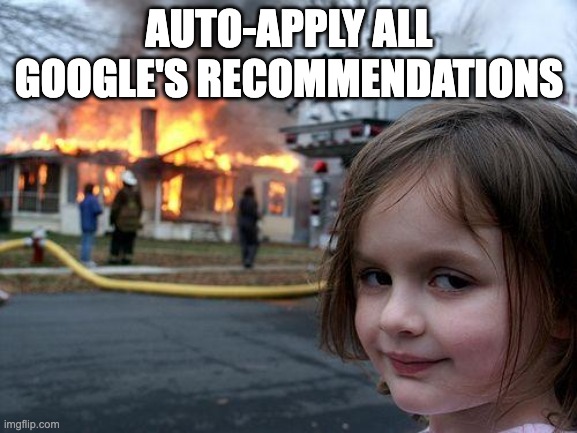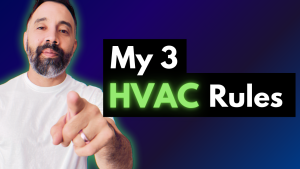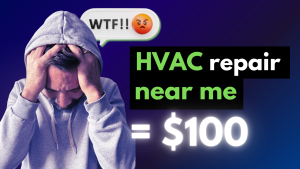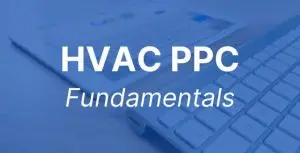Introduction: Why HVAC Google Ads Can Make or Break Your Marketing Budget
Running Google Ads for your HVAC business can be a game-changer—but only if you do it right. The truth is, Google Ads is not a set-it-and-forget-it tool. If you don’t know what you’re doing, you risk burning through thousands of dollars, falling behind your competitors, and hurting your ROI.
In this article, I’m breaking down 20 deadly mistakes HVAC contractors make with Google Ads and showing you how to fix them. Whether you’re dealing with high costs-per-click, poor conversions, or confusing analytics, these actionable tips will help you optimize your campaigns and generate more leads for less.
Let’s dive into the top mistakes and how to avoid them.
WATCH: In this video, I walk you through the 20 deadly HVAC Google Ads mistakes and how to avoid them. Watch now to ensure your campaigns succeed!
20 Deadly HVAC Google Ads Mistakes (and How to Fix Them)
1. Only Using Google Ads as Your HVAC Marketing Strategy
Relying on Google Ads alone is a common mistake. The most successful HVAC businesses don’t just run ads—they build comprehensive lead generation systems that integrate SEO, Local Service Ads, email marketing, and more.
Pro Tip: Learn why a system-based approach is crucial for HVAC success in My 3 HVAC Marketing Rules to Play Like the Top Performers. [VIDEO]
2. Running HVAC Google Ads Without a Goal
If you don’t have clear goals for how many leads you want or how much you’re willing to pay for each lead, you’re setting yourself up for failure.
How to Fix It: Define your lead generation goals and determine your maximum cost-per-lead before launching any campaign.
3. Not Understanding Your Results
Google Ads and Google Analytics can be overwhelming, especially if you’re unsure what to look for. Without a simple scoreboard, you’ll struggle to know if your campaigns are working.
Solution: Use a clear, easy-to-read scoreboard that compares your goals to your results.
4. Neglecting Google Ads Fundamentals
Understanding the structure of Google Ads is essential. If you don’t know how accounts, campaigns, ad groups, and keywords work together, your campaigns will suffer.
Pro Tip: Take the time to build campaigns with clear themes, relevant keywords, and tailored ads for each service.
5. Ignoring Your Google Business Profile
Your Google Business Profile (GBP) is a free, high-impact tool that works alongside Google Ads to boost your visibility. GBP is also a lot easier to use than Google Ads.
Fix: Optimize your GBP with up-to-date information, photos, and reviews. This also helps with local SEO.
6. Confusing Google Ads with Local Service Ads
Google Ads and Local Service Ads (LSAs) serve different purposes. LSAs focus on Google’s Guaranteed program and require minimal customization, while Google Ads offers more control.
Learn More: Stay tuned for my upcoming video where I’ll compare the two in depth.
7. Using a Budget That’s Too Small
Google Ads can be expensive, especially in competitive markets. Without a realistic budget, your campaigns won’t generate enough clicks to drive leads.
Related Video: Watch I’M EXPOSING the HVAC PPC Costs in Every State to see average costs-per-click across the U.S.
8. Running Ads with a Poor Website or Landing Pages
Your ads are only as effective as the landing pages they drive traffic to. If your website provides a bad user experience, potential customers will bounce—and you’ll still get charged for the click.
Fix: Invest in professional landing pages optimized for conversions.
9. Using Smart Campaigns
Google’s Smart Campaigns might seem convenient, but they rarely work in competitive industries like HVAC.
Fix: Switch to manually optimized campaigns for better performance.
10. Trusting Google Ads Reps Without Question
Google Ads reps work for Google, not your business. While they can provide useful guidance, their advice often revolves around increasing your spending—not your results.
Tip: Treat their advice with caution and always prioritize your campaign’s ROI.

11. Not Understanding Keyword Match Types
Using the wrong match types (broad, phrase, or exact) can waste your budget by showing ads for irrelevant searches.
Fix: Learn how match types work and use negative keywords to filter out unqualified traffic.
12. Ignoring Negative Keywords
Failing to use negative keywords means your ads could show up for irrelevant searches, like “HVAC supplies.”
Fix: Add negative keywords like “supplies” or “parts” to ensure you’re only targeting potential customers.
13. Poor Conversion Tracking
Without conversion tracking, you can’t tell which clicks are turning into leads and you can’t train the Google Ads algorithm for better performance.
Fix: Track form submissions, phone calls, and bookings to understand your campaign’s performance.
14. Using the Wrong Bidding Strategies
Your bidding strategy should align with your goals, and more importantly, they are strictly dependent on how you track conversions.
For example:
- When you are only tracking conversions, but you’re not assigning a dollar value to them, use Maximize Conversions or Target CPA.
- When you are tracking conversions AND assigning a dollar value to them, use Maximize Conversion Value or Target ROAS.
- If you are not tracking conversions (you absolutely should), then use Manual CPC or Maximize Clicks.
15. Setting It and Forgetting It
Google Ads requires regular monitoring and optimization. If you’re not checking in on your campaigns, you’re missing opportunities to improve performance.
16. The HVAC Google Ads Jitters
Making daily changes to your campaigns disrupts the algorithm and prevents it from optimizing effectively.
Fix: Give your campaigns time to collect data before making adjustments.
17. Ignoring Dayparting
Adjusting your ad schedule to match business hours or peak demand times can save money and improve results.
Fix: Create separate campaigns for 24/7 emergency services with custom ad schedules.
18. Enabling the Search & Display Networks
By default, Google Ads targets the Search and Display Networks, which can waste your budget on low-quality traffic.
Fix: Turn this option off in your campaign settings.
19. Targeting the Wrong Locations
Using the wrong location settings means your ads could show up to people outside your service area.
Fix: Target only people who are currently in your desired service area.
20. Not Adapting to Seasonality
Your campaigns should align with seasonal demand. Running heating ads in summer won’t resonate with customers.
Fix: Adjust your keywords and ad copy based on the season, or intentionally target off-season keywords to find gaps in the market.
Stop Wasting Money and Start Generating Results
Avoiding these 20 mistakes will help you maximize your HVAC Google Ads budget, generate more qualified leads, and stay ahead of your competition.
Ready to take your HVAC marketing to the next level? Check out:
👉 HVAC Marketing Services














